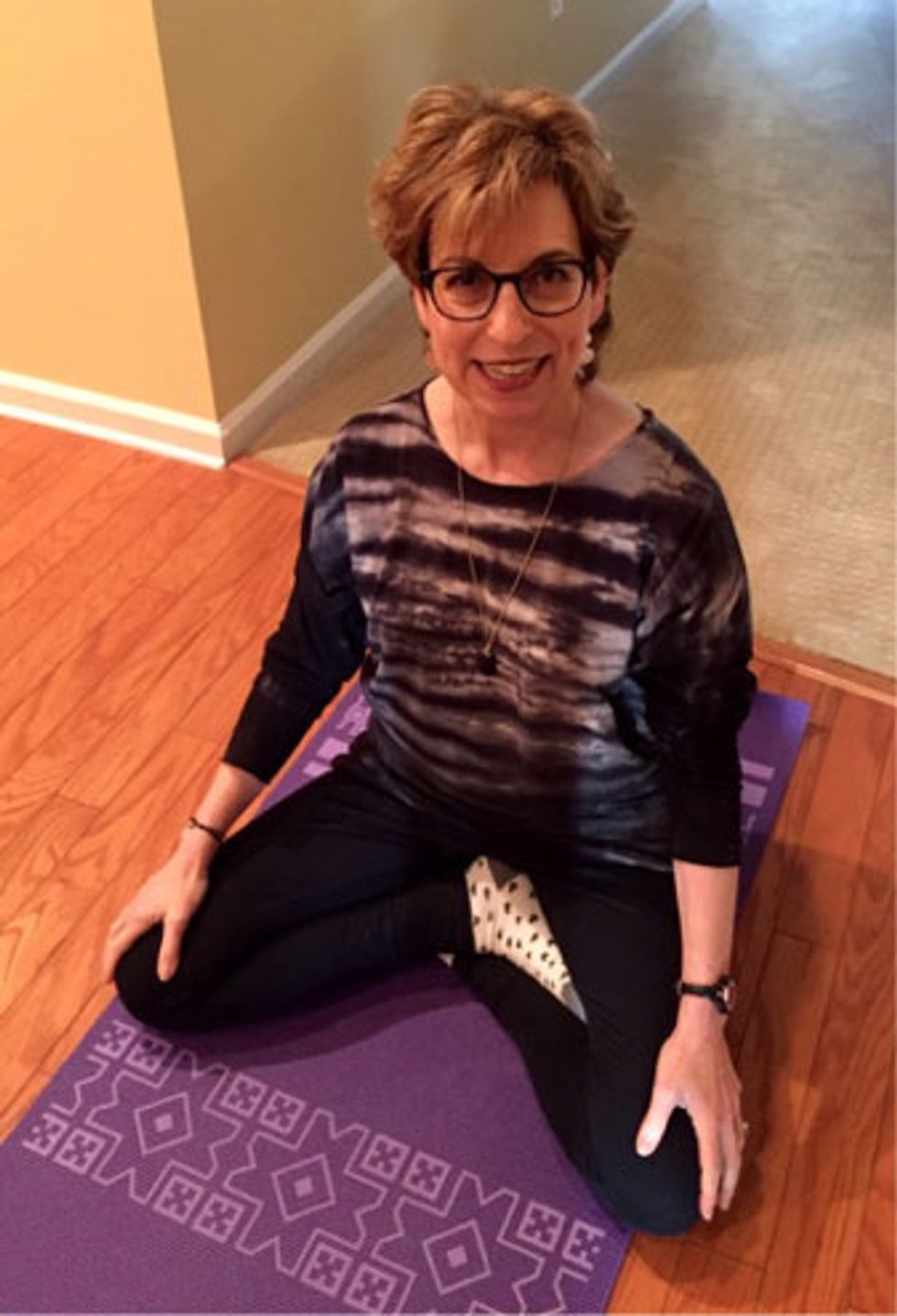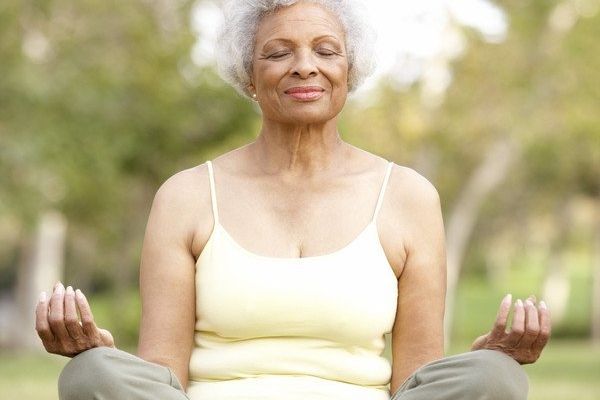It has been almost 10 years since I studied mindfulness meditation. At the time, my therapist C suggested I sign up for the Mindfulness-Based Stress Management Program at The Penn Medicine Program for Mindfulness. It was right after my husband M died, and she thought learning these new skills would help me process my grief and reduce my stress.
I went to an eight-week program and began my mindfulness journey. It changed my life.
Last night I was reminded of these changes as I sat among mindfulness newbies in one of Penn's two-hour introductory classes. As a yoga instructor, I wanted to brush up on my mindfulness skills so I can share the benefits with my yoga students.
"Mindfulness originated in India. It comes from a word that translates as heartfulness," said our leader M. "It is a way of bringing your attention to the present moment."
Like yoga, mindfulness is a practice. You have to work at it to experience the changes it can bring.
The Penn Program is modeled after the philosophy of Jon Kabat-Zinn, PhD, who has done landmark work on mindfulness meditation and healing and is the author of the bestseller Full Catastrophe Living: Using the Wisdom of Your Body and Mind to Face Stress, Pain, and Illness.
M noted, "Dr. Kabat-Zinn says mindfulness is when you are bringing your attention on purpose, in the present moment, and without judgment." (If you want to learn more about Dr. Kabat-Zinn check out his 60 Minutes interview from 2014 with Anderson Cooper.)
How Do You Practice Mindfulness?
During the evening session, M guided us through different exercises to bring us into the present moment. We did a 25-minute meditation, closing our eyes and bringing our attention to various parts of our body, such as noticing the top of our head when M would mention it or our fingers or toes.
For many of the newbies, their wandered during the meditation. M would remind us to bring our attention back to the body. My mind wandered, too, but not as much as in earlier days.
Using Mindfulness to Manage Stress
"What is stress for you personally?" M asked.
We gathered in groups to discuss our stress. "Lack of sleep," said one participant. "Pain," said another. "Worry," said another. "Perfectionism and over thinking," chimed in two more.
While I could identify with these attributes, I realized that by practicing mindfulness (and yoga) over the past decade, I've mellowed and let go of quite a few of the habits that once brought me stress.
I still put added stress on myself by saying "yes" to too many things or putting too much on my plate for the week or the day. However, I am quicker to notice these behaviors and thoughts and make changes. For example, I still have issues with the stress of menopausal insomnia. However, I'm easier on myself the day after a sleepless night.
M talked about how helpful mindfulness can be as a stress management tool. "Whether the stressful event or thing is pain, an unwanted diagnosis or lack of sleep, you learn to become better at controlling your reaction," M said. "You begin to notice how you react and you come back to the present moment. More stable. More balanced."
M said that stressful events trigger reactions such as thoughts, emotions and physical sensations. "Oftentimes our thoughts are not truthful," M said. "What fires together wires together. With mindfulness, we begin to look at how to unwire. Just by noticing we can shift how we react."
Stop, Breathe, Be
I smiled when M wrote these three words on the board. "Stop, Breathe, Be." This simple concept, while challenging sometimes to practice, is now embedded in my vocabulary and my actions. I often share this mindfulness exercise with my friends, my family and my students.
Here's what you do when you are in a stressful situation or thinking stressful thoughts:
- STOP: Stop what you are doing and bring your attention to how you feel.
- BREATHE: Take an inhalation and an exhalation. (In yoga, we are taught to breathe through our nose.)
- BE: Release the focus on the breath and bring your attention to the present. It will help you to be more responsive than reactive in a situation. "It helps us to see ourselves, see our habits and cultivate new habits," M said.
So, are you ready to practice mindfulness? Go ahead and try this exercise the next time you are stressed. Let me know if it works. Remember, no judgment. It's a practice.
Namaste.
This post originally appeared on aboomerslifeafter50.com.









